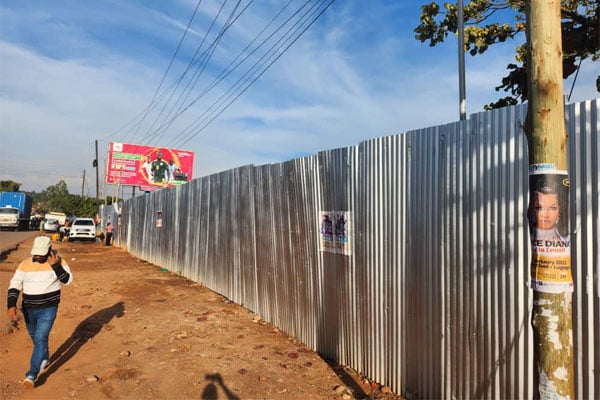New Coffee Bill to protect farmers from exploitation

Workers sort coffee beans at National Union of Coffee Agribusiness and Farm Enterprises in Kampala. Photo by Rachel Mabala
What you need to know:
- Uganda is currently the 10th largest world coffee producer; eighth largest exporter in the world and 1st in Africa. Increasing coffee exports would bring in vital forex for Uganda to create better terms of trade. But there have been mixed reactions over some of the clauses in the National Coffee Bill 2018. Prosper Magazine’s Dorothy Nakaweesi caught up with Uganda Coffee Development Authority’s executive director Mr Emmanuel Iyamulemye on why this Bill was introduced. Below are excerpts of the interview.
What is the objective of the National Coffee Bill 2018?
The purpose of the National Coffee Bill 2018 is to reform the current law to provide for Uganda Coffee Development Authority to oversee and regulate all on-farm and off-farm activities along the coffee value chain.
Is there need to replace the current law?
Yes there is. The proposed Bill seeks to address new developments, advances and challenges that have emerged in coffee research and extension services, farmer organisations and climate change. The Uganda Coffee Development Authority Act, Cap. 325, enacted 28 years ago, does not meet the current needs and long-term goals of government.
How is the Bill proposing to deal with gaps in the current law?
The National Coffee Bill proposes to address the gaps identified in the current law by defining the roles of different stakeholders in the coffee value chain. This includes the role of the minister responsible for the coffee sub-sector, regulating the coffee value chain starting with the on-farm activities, which include generation of planting materials, soil management, irrigation, pest and disease management and harvesting to off-farm activities including drying, sorting, primary processing and tertiary processing.
The new Bill seeks to introduce a voluntary coffee auction system to offer an alternative method of selling coffee. This should bring efficiency in the sub-sector resulting from increased competition. The Bill will empower UCDA to provide coffee extension services beyond agronomic practices and constitute a national coffee farmers register.
The Bill also seeks to enhance fees and penalties to encourage compliance. The current statute does not have punitive clauses to penalise culprits that contravened aspects of the provisions.
In what way is this Bill different from the current law?
The current law only covers off-farm activities of marketing and processing, leaving on-farm activities like generating planting materials, harvesting, and post-harvesting handling (including drying of coffee) and coffee extension services outside the scope of the law. As a result, the sub-sector cannot perform to its maximum or expected capacity.
It limits the roles of UCDA and does not encompass the entire value chain. The Authority should regulate on-farm and off-farm activities including seed gardens, nursery management, pests and disease control, rehabilitation, harvesting, drying, grading, tertiary processing and marketing. The current law has a number of redundant clauses that have been overtaken by time like the setting of minimum prices and putting in place a price committee. This is not sustainable in a liberal economy since UCDA only publishes indicative prices.
The proposed law will provide for coffee research and development, which is vital to the improvement in production and productivity, quality and value addition, market development and intelligence and institutional development and accountability.
Is the Bill seeking to license coffee farmers?
No! The Bill is not seeking to license coffee farmers. The Bill does however seek to register coffee farmers. Part IV of the Bill, clauses 26, 27 and 28, provides for registration of a coffee farmer, a national coffee register and deregistration.
The Authority will use the information compiled to facilitate the provision of services to coffee farmers individually or through farmer groups. These services include: Extension services on: - Seed gardens and seed management, good agricultural practices; disease and pest management control, harvest and post-harvest handling. The new Bill also seeks to budget and plan for the services that are critical for coffee production and productivity.
The new Bill will look out for the source/traceability (from farm to cup) of the product. Buyers/consumers want to know where the coffee they consume comes from, who produces it and what farming practices they employ.
Is there any cost attached to the registration of farmers?
Registration will have no cost for the farmer. Registration of farmers shall be free as indicated under clause 27(4). UCDA or its representatives in liaison with other government entities shall carry out this registration.
What will the smallholder farmers get out of this Bill?
All registered coffee farmers will benefit. We are looking forward to seeing an empowered farmer with improved yields and good quality coffee.
The Bill protects smallholder farmers from exploitation by unscrupulous sector players. The farmers will be mobilised into farmer groups, cooperatives and/or associations.
What will the proposed Bill contribute to the economy?
Passing this Bill will enhance capacity of UCDA to broaden its decentralised network in all coffee growing districts. We expect to see expanded research services at all value chain levels including better collaboration with the newly set up Directorate of Agricultural Extension Services in the Ministry of Agriculture.
Increased production in line with the Coffee Road map to rise to 20 million 60kg bags by 2025 with the aim of reaching a target of 2,000kg per hectare per annum.
We expect this to contribute 30 to 35 per cent (Shs7.8 million) of the national target of Shs24 million per household per annum and achieve the middle income status by 2020. When all this is in place, at least another 1.2 million jobs will be created across the value chain by 2025.
Increased volume and reduced cost as a result of bulk processing rather than individual processing; Increase in domestic per capita consumption from 0.36kg to 0.5kg by 2025. This will lead to a rise in domestic consumption from 260,000 60 kg bags to 296,400kg by 2025.




